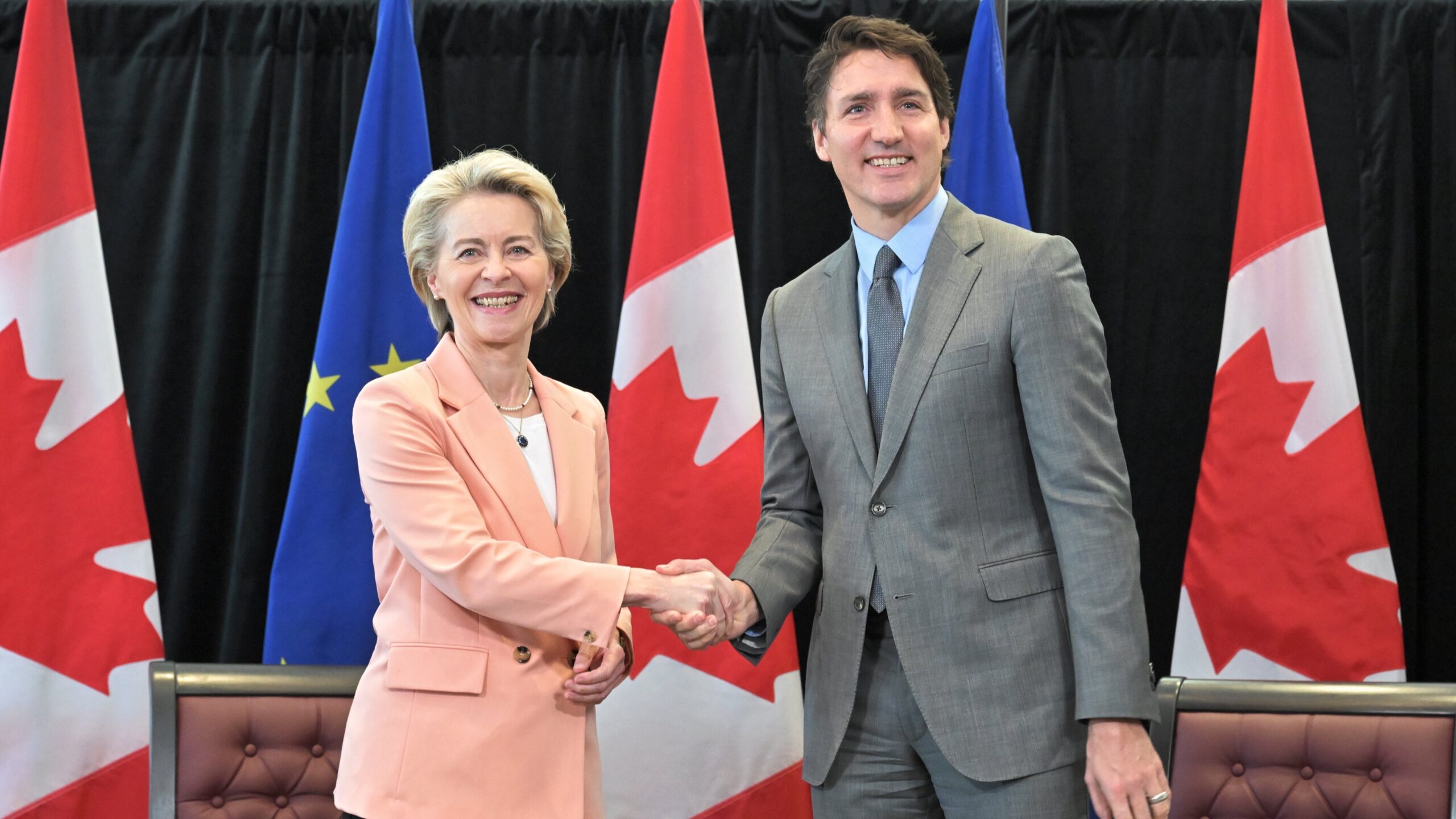The concept of a new “green alliance” is being discussed between Europe and Canada.
At a gathering with Prime Minister Justin Trudeau, President of the European Commission Ursula von der Leyen emphasised the significance of obtaining raw materials. From “trusted partners” in a time of supply chain disruption.
The proclamation draws attention to a fresh strategy being employed by Brussels to develop greater transatlantic links using raw resources.
In Kingston, Ontario, on Tuesday, von der Leyen told reporters, “It’s to create excellent and well-paying employment. To promote growth, to enhance our energy and climate cooperation across the board.
She claimed that 98 percent of the rare earths used in Europe are produced in China. “This dependency needs to be de-risked for Europe.”
Canada is a country rich in minerals and a significant global producer of uranium, palladium, niobium, and potash. The lengthy process of clearing regulatory hurdles hasn’t typically attracted investors to fund Canadian enterprises.
A hydrogen memorandum of understanding is also the subject of ongoing negotiations. According to von der Leyen, Europe has a limited amount of time to import 10 million tonnes of the fuel by 2030.
A decision to start exporting hydrogen from Canada to Germany in 2025 has sparked interest in the country’s supply.
The ambitious objective is “doable,” according to Trudeau, despite the absence of export facilities in Atlantic Canada.
The green deal commitment comes the night before von der Leyen is scheduled to meet with President Joseph Biden in Washington.
To persuade Biden to extend the Inflation Reduction Act’s (IRA) tax incentives to the European Union’s electric vehicle industry would be her difficult assignment there.
Since being elected president in 2019, von der Leyen has not before visited Canada. The elections in Europe will bring an end to her five-year mandate in 2019.
Later this month, Biden is anticipated to travel to Canada for the first time since becoming office.
At the High Level Climate Dialogue later this year, more information regarding the EU-Canada green alliance is anticipated.
As wealthier nations look to decarbonize and establish sectors to replace dependence on Russia and China.
Partnering with Canada—a beneficiary of the IRA’s North American content criteria for EVs—is one step to advance trade relations.
A legislative committee in Canada has also studied the effects of the IRA due to concerns over its enormous $369 billion clean tech initiative.
However, it has stoked concerns about protectionism and worries that investments will be diverted from western partners.















